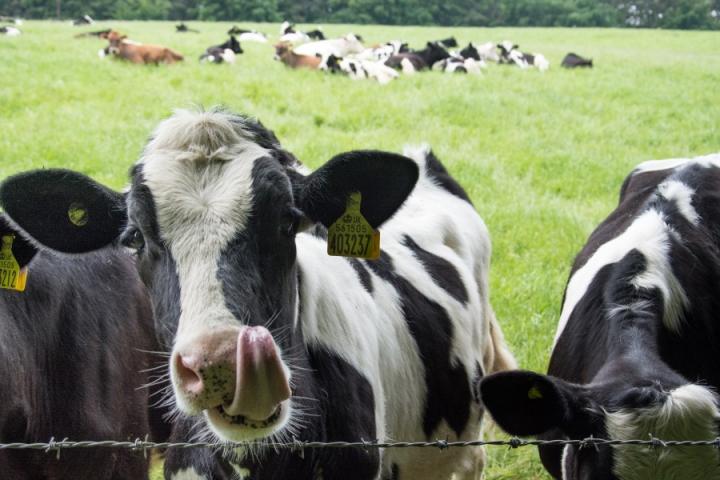New agreement to develop E. coli vaccine
A new collaboration agreement has been signed to develop a vaccine to prevent life-threatening diseases in people.

The Roslin Institute has signed an agreement with Roslin Technologies, Scotland’s Rural College and Moredun Research Institute, to fund the commercial development of an E. coli O157:H7 vaccine for cattle to prevent life-threatening illnesses in people.
Scientists at Roslin and Moredun have provided the fundamental research behind the feasibility of a vaccination approach. They are now working closely with Dr Simon Wheeler of Roslin Technologies who are progressing the commercial development phase of the vaccine.
Foodborne illness
E. coli O157:H7 is a pathogenic bacterium of cattle which can cause life-threatening foodborne illness in humans through the consumption of contaminated products such as dairy products and meat.
Despite efforts to reduce contamination of food, E. coli O157:H7 causes 1-10 cases per 100,000 people, with certain countries having clusters of more virulent strains (UK, USA, Argentina, and Sweden).
Cost-effective vaccine
The experimental vaccine has been developed to limit E. coli O157:H7 shedding from, and transmission between, cattle. Although the bacteria doesn’t harm the cattle, farmers will be encouraged to vaccinate animals against infection and this new vaccine should enable this to be done cost-effectively.
Early results have indicated that the vaccine may be more effective than other previous attempts and have a greater impact in reducing human exposure and infection.
Field trials
Under the new agreement, Roslin Technologies will perform a two-step validation trial from May to September 2020 in Nebraska, USA.
The field trials will examine super-shedding in cattle (the passing of large volumes of bacteria in faeces) to discover whether the vaccine prevents shedding of the bacteria and is viable for commercial use.
I’m delighted that Roslin Technologies has invested in the vaccine as it allows the chance for what’s been over a decade of work, investment and research to go to the next stage. It means we can build collaboration with US partners to understand how the vaccine works and hopefully provide further commercial development and investment opportunities for Roslin Technologies and other commercial companies in this space.
** The Roslin Institute receives strategic investment funding from the Biotechnology and Biological Sciences Research Council and it is part of the University of Edinburgh’s Royal (Dick) School of Veterinary Studies. **
Related links
Study could explain higher rates of human E. coli infection in Scotland


